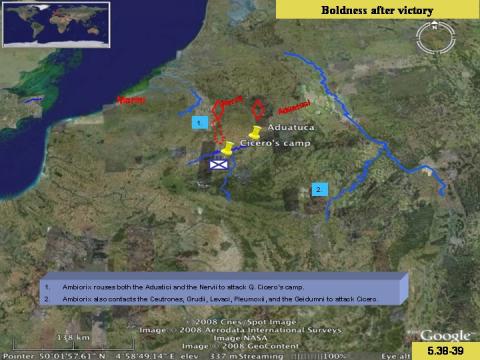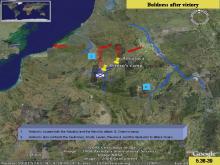Hāc vīctōriā sublātus Ambiorīx statim cum equitātū in Aduātucōs, quī erant ēius rēgnō fīnitimī, proficīscitur; neque noctem neque diem intermittit peditātumque sēsē subsequī iubet. Rē dēmōnstrātā Aduātucīsque concitātīs, posterō diē in Nerviōs pervenit hortāturque nē suī in perpetuum līberandī atque ulcīscendī Rōmānōs prō eīs quās accēperint iniūriīs occāsiōnem dīmittant; interfectōs esse lēgātōs *duo* māgnamque partem exercitūs interīsse dēmōnstrat; nihil esse negōtī subitō oppressam legiōnem quae cum Cicerōne hiemet interficī; sē ad eam rem profitētur adiūtōrem. Facile hāc ōrātiōne Nerviīs persuādet.
notes
vocabulary
media
Text Read Aloud
Maps and Images
English


